
Vol. XXII, No. 5, May 2022
The growing importance of sustainability to purchase decisions
Almost 7 in 10 adults are concerned or somewhat concerned about climate change and its impact.
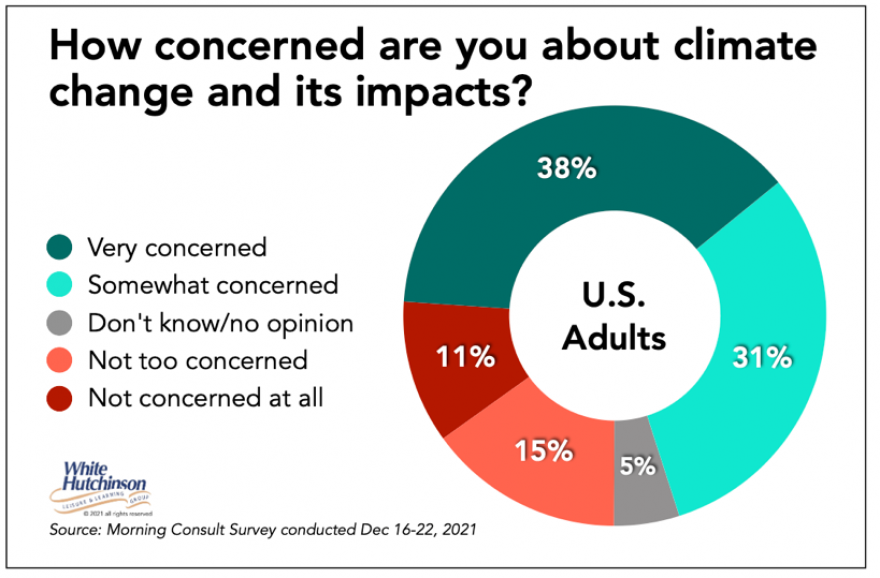
New research from The First Insight Team & The Baker Retailing Center at the Wharton School of the University of Pennsylvania found that the importance of sustainability has emerged as a key component of decision making for purchase decisions by nearly every generation. The research attributes it to the profound effects of global warming and climate change, along with near-annual "hundred-year" weather catastrophes and wildfires that have made it abundantly clear that past generations have not been good stewards of our planet. The research shows the growth in importance of sustainability by every generation since 2019. Here are some of the research's findings.
The majority of every generation, except for Baby Boomers, now prefer to buy from sustainable brands.
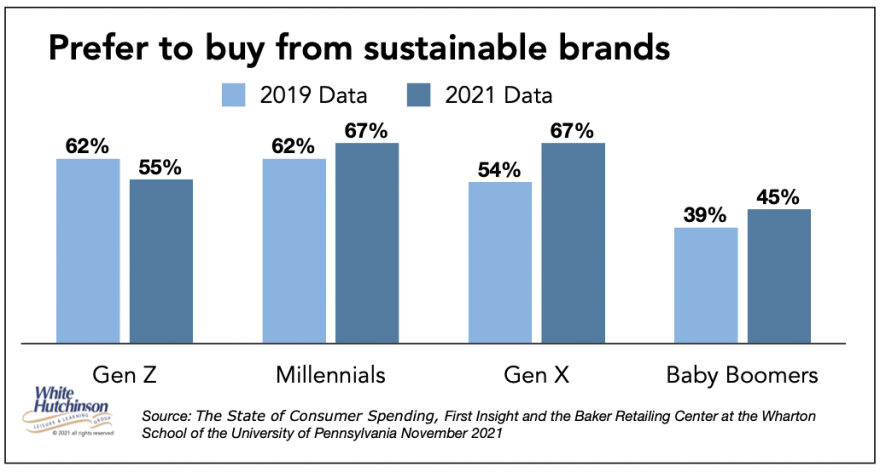
The majority of all generations are willing to pay more for sustainable brands than two years prior. Gen Z had the highest increase at 42%.
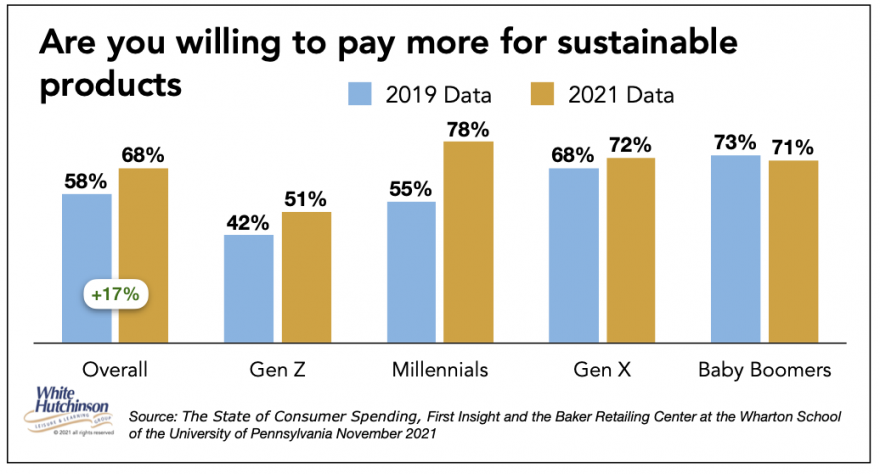
All generations are willing to spend an at least 10% more on sustainable products compared to 2019. Baby Boomers increased by 230% since 2019, Generation X increased by 159%, Millennials increased by 72%, and Generation Z increased by 50%.
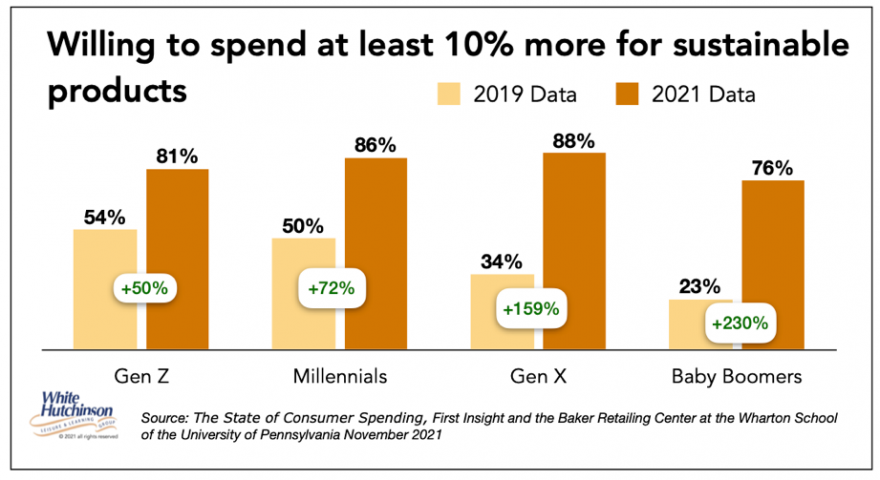
A large majority, nearly or more than three-quarters of all generations now expect retailers and brands to become more sustainable, roughly triple the percentage in 2019.
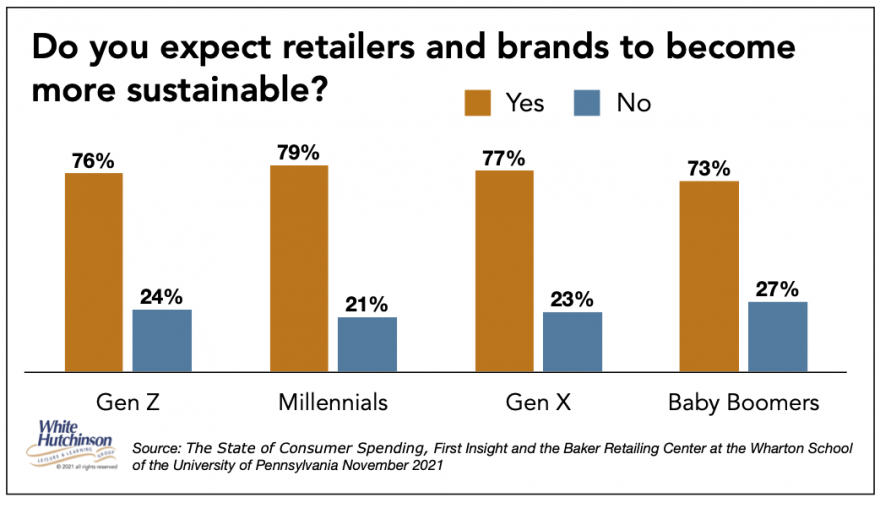
There is a disconnect between Gen Z and the other generations on what sustainability means. Nearly half of Baby Boomers (44 %), Generation X (48 %), and Millennials (46%) believe that sustainability means products made from recycled, sustainable, and natural harvested fibers and materials. Gen Z (48%) believes that sustainability is more about sustainable manufacturing.
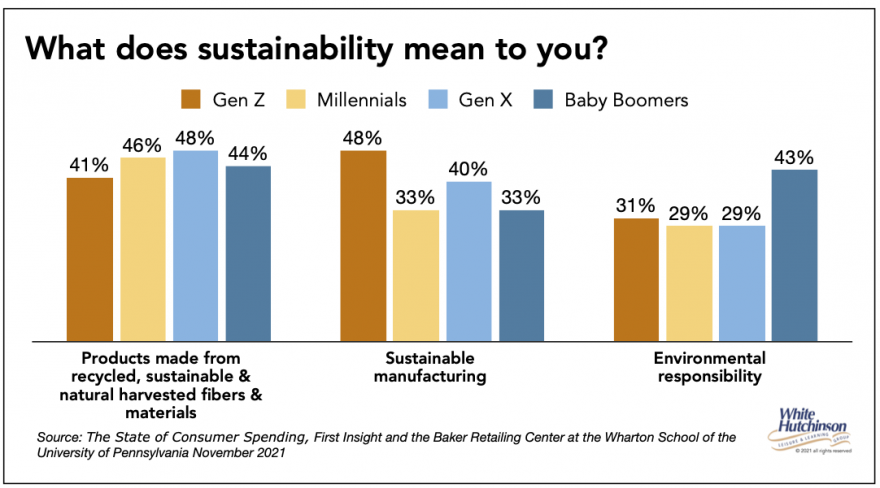
Another study by an insurance comparison site, Compare by Review, of Millennials also shows that sustainability has become a factor in decision making. The study found that one-third of 20- to 45-year-olds state climate change concerns as a factor in their decision to have fewer children. It also found that one in five Millennials has changed their diet to reduce their impact on the planet, with 54% identifying as flexitarian,
Although the studies were focused on retail and other decisions, they clearly show how consumer values affecting their purchase and other choices have shifted, with sustainability being a significant consideration. These values are just as likely to influence the location-based entertainment and leisure venues people choose to visit. This presents an opportunity for entertainment and leisure venues to gain a competitive edge over their competition, which not only includes other venues, but all the other leisure options people have.


